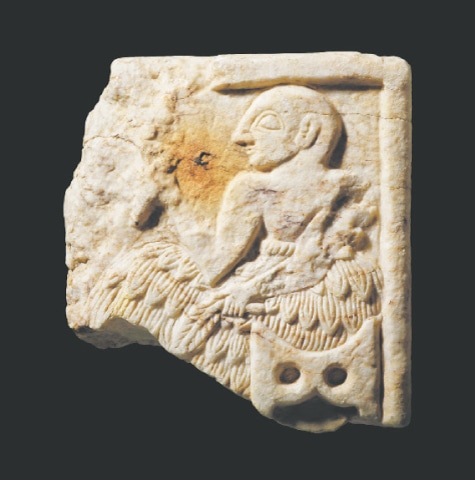
LONDON: Britain will hand back a 4,000-year-old sculpture to Iraq after an investigation found that it had been looted, the British Museum said on Monday.
Museum experts were called by a specialist London police unit after an online sales platform offered the artefact for sale in May last year with only limited details of its provenance.
Despite the online listing describing it as “a Western Asiatic Akkadian tablet”, the experts determined the limestone wall plaque came from an ancient Sumerian temple dating to around 2,400 BC.
The temple had been excavated and looted in the late 19th and early 20th centuries, looted again in the 1990s during the Gulf War and most recently in 2003 during the Iraq War, the museum said, without specifying when the plaque was taken.
“This important piece was illegally removed from Iraq and discovered by authorities in the UK,” the British Museum said in a statement.
“Temple plaques such as this are rare and there are only around 50 examples known in existence.”
The London-based institution said the Iraqi government had “generously permitted it to go on display” at the museum before it is repatriated.
“The British Museum is absolutely committed to the fight against illicit trade and damage to cultural heritage,” its director Hartwig Fischer said.
Jim Wingrave, of the Metropolitan Police, urged antiquities’ buyers to “conduct a thorough due diligence process before every purchase”, especially when dealing with items from recent war zones like Iraq.
The British Museum said in July 2019 that it was working to appraise and return various looted ancient artefacts from Iraq and Afghanistan that had been seized in Britain.
Among the articles it had scheduled for return to Iraq were 154 Mesopotamian texts written on clay in cuneiform script — one of the earliest systems of writing — and seized on entry in 2011.
However, the museum has faced criticism for failing to return some disputed items to origin countries, most notably the Parthenon Marbles, also known as the Elgin Marbles, which Greece has long claimed.
It is also under pressure to return other precious artefacts looted during the era of the British empire, including the ornate Benin Bronzes statues to Nigeria.
Published in Dawn, September 29th, 2020













































